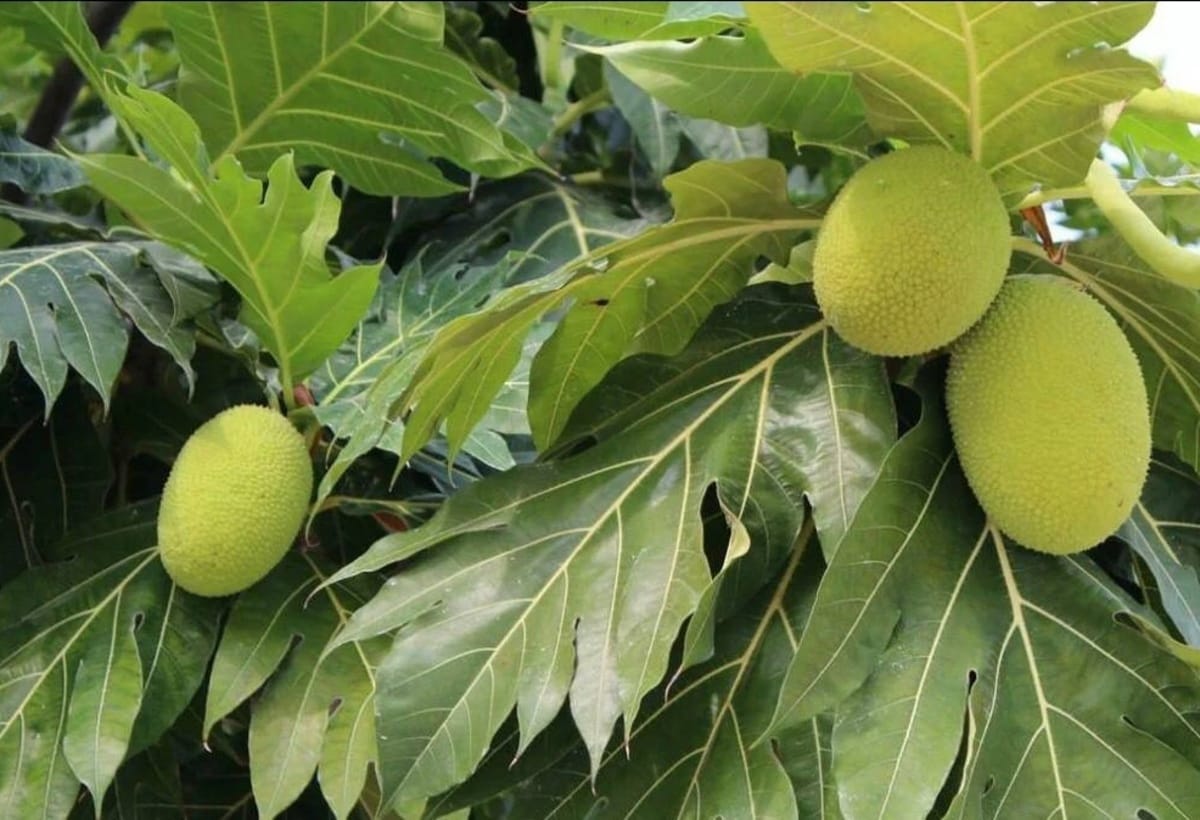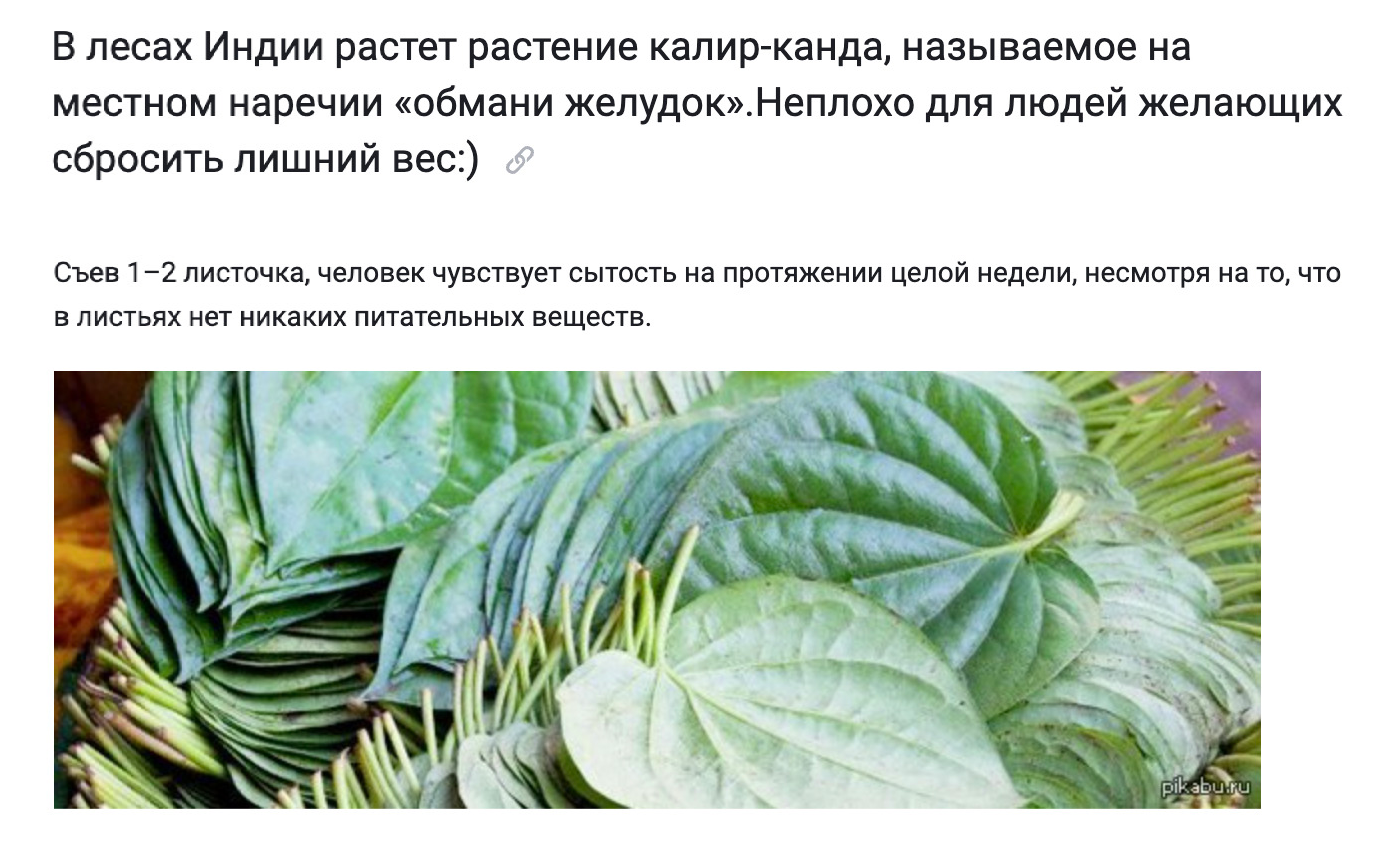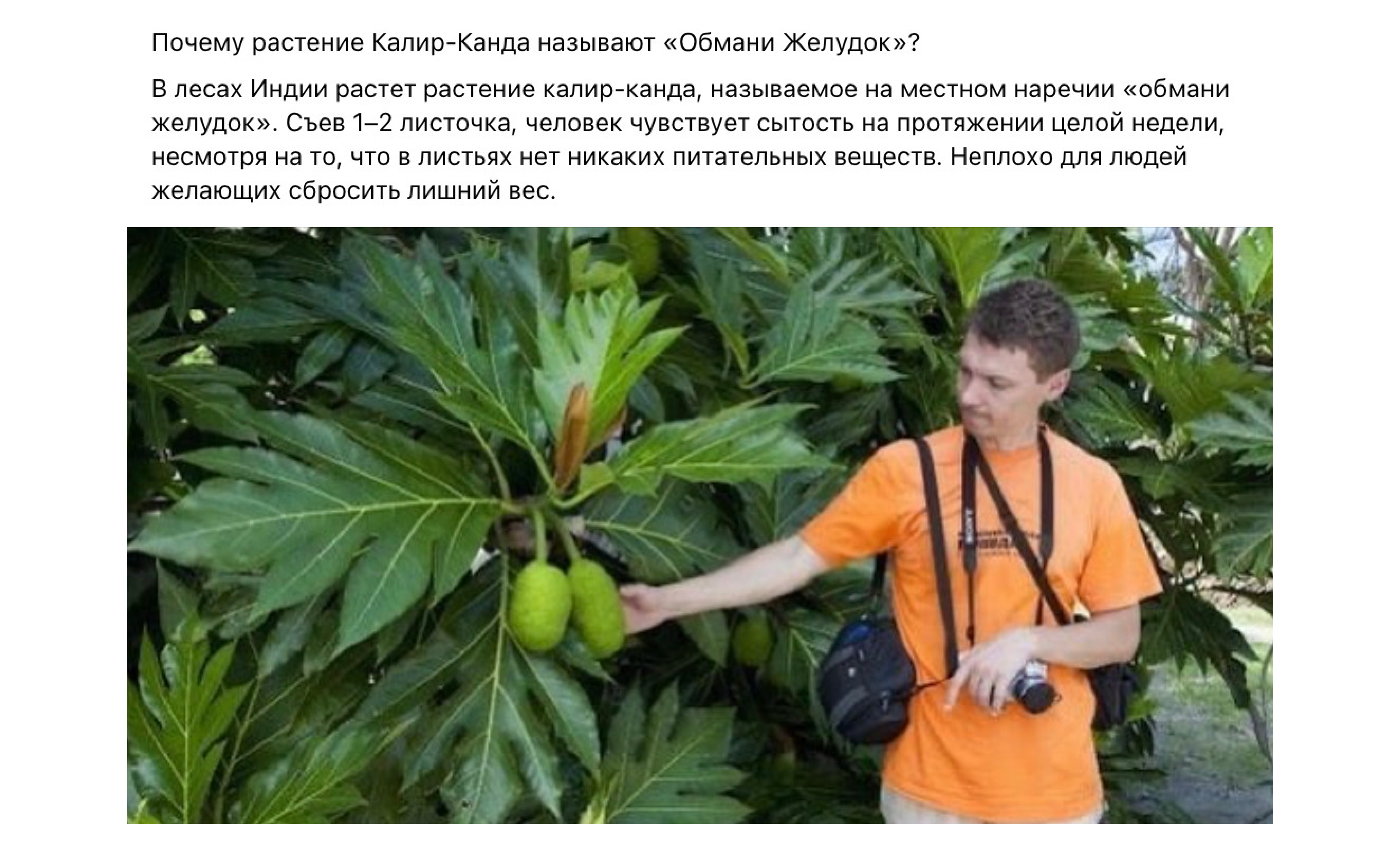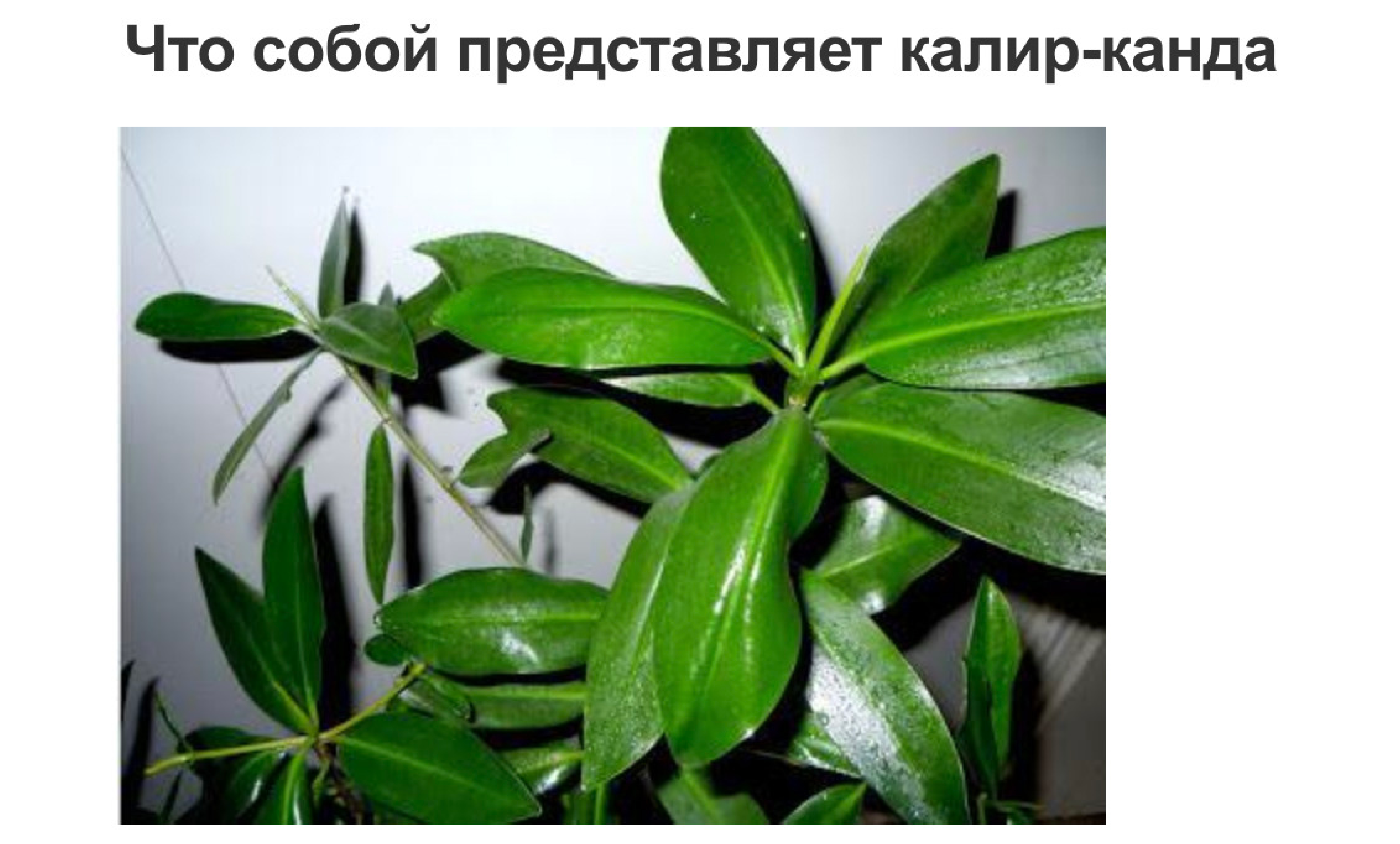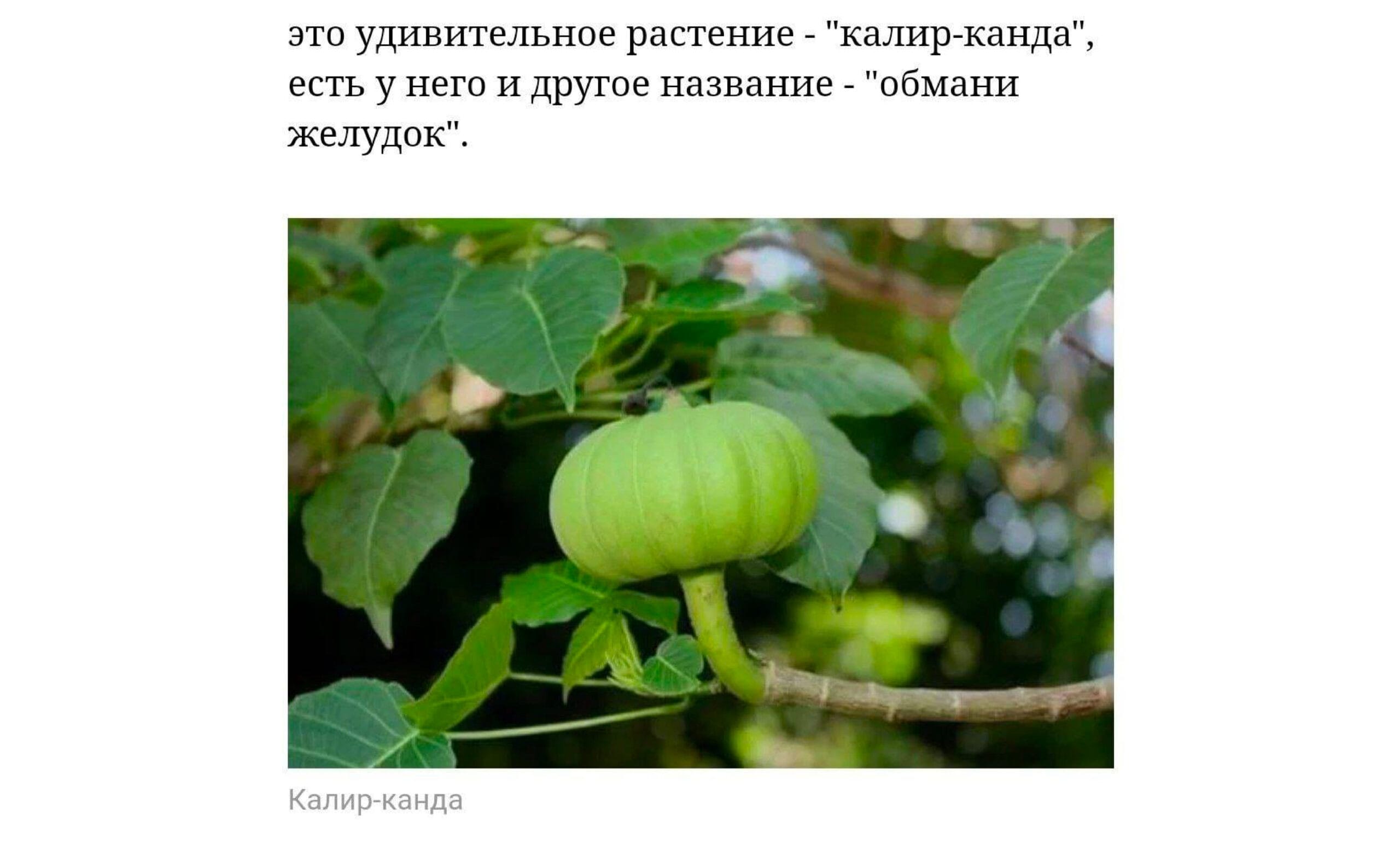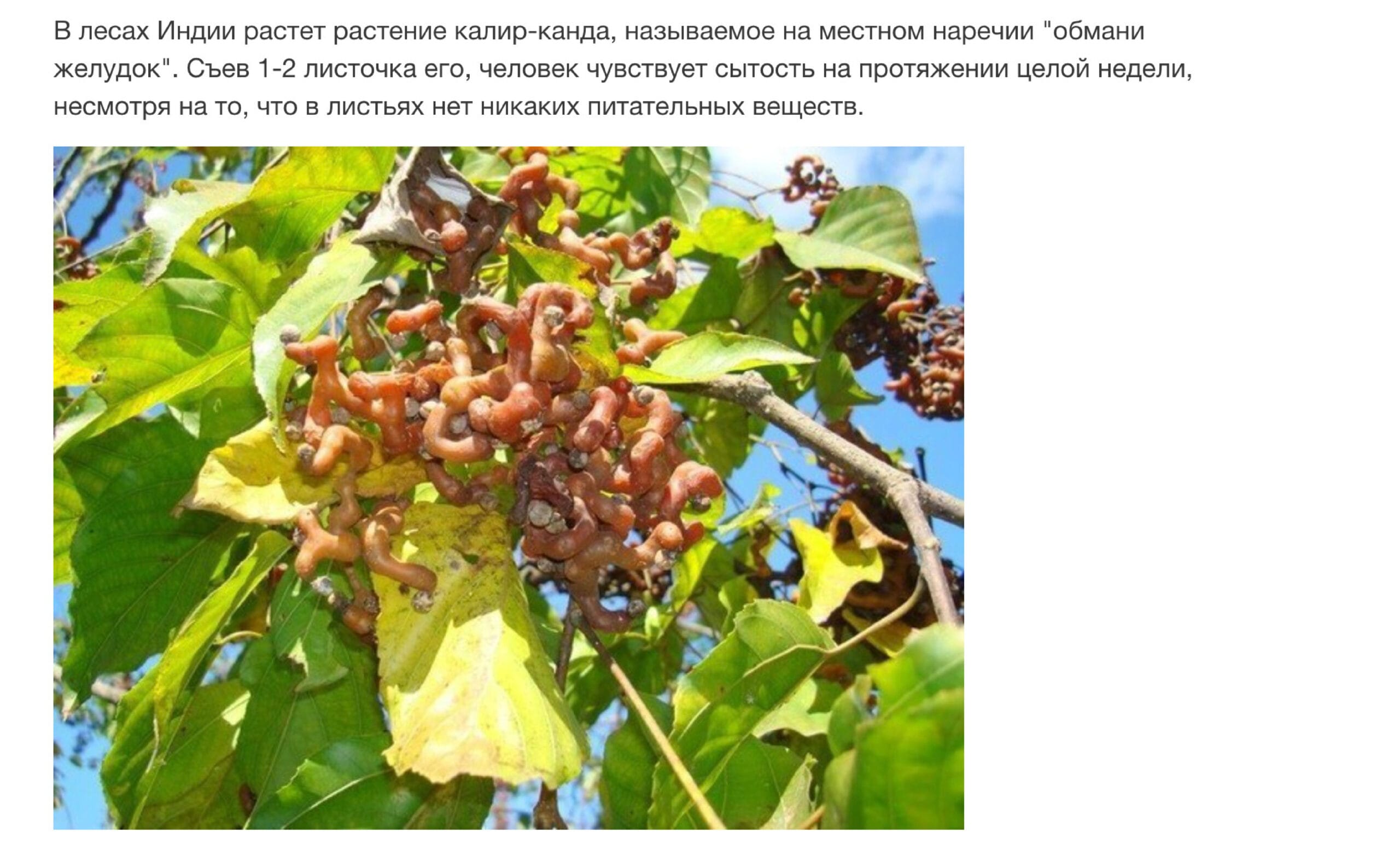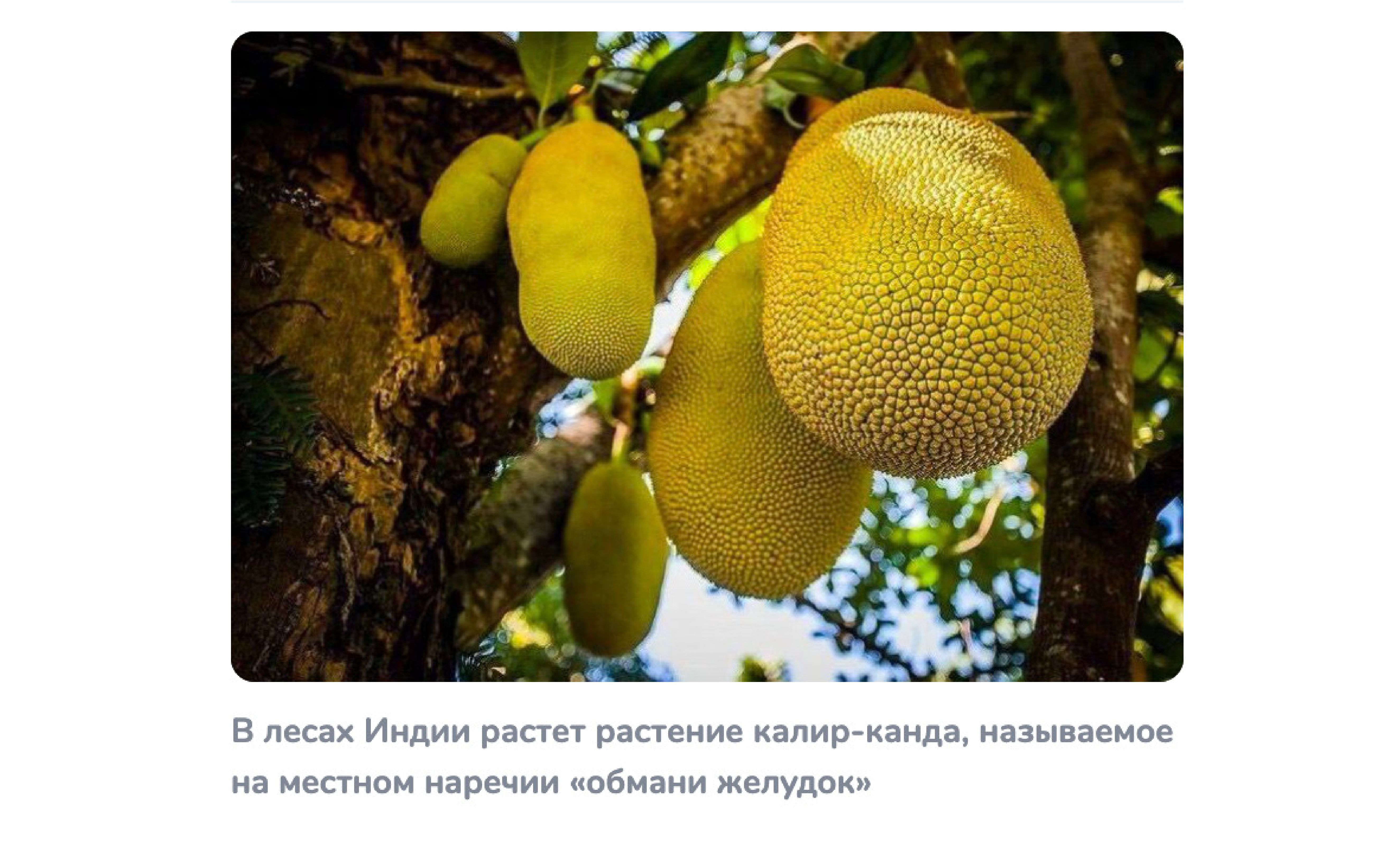For several years now, Internet users have been talking about the Indian plant kalir-kanda, which, by eating one or two leaves, can supposedly satisfy hunger for a whole week. We decided to check how true such posts are.
They write about a wonderful Indian plant that supposedly gives you a feeling of fullness for a week. entertaining portals and websites O travel. It is alleged that its name is translated from the local dialect as “deceive the stomach.” This information is shared by social media users (Facebook*, Instagram*, "VKontakte", X, Telegram etc.) and blog platforms (“Peekaboo", LiveJournal, Reddit, Blogspot). You can find information about Kalir Kanda in some books, for example in “Small Children's Encyclopedia"edited by the Russian Encyclopedic Society. On websites with reviews, people share their experience of using biologically active supplements (dietary supplements) for weight loss with kalir-kanda.
“Verified” was unable to find information about the plant called “Kalir-kanda” outside the Russian-language segment of the Internet. However, if we talk about scientific sources, there is no information about the miracle plant in the database Digital Herbarium of Moscow State University, where more than a million specimens from all over the world are collected, not among hundreds of digitized reference books, encyclopedias and scientific works Central Scientific Agricultural Library. This plant is not mentioned on other authoritative Russian-language scientific resources.
In the English-speaking segment of the Internet, a search for various transliterations of the name “kalir-kanda” does not yield any results, and not only on scientific and encyclopedic portals, such as Britannica, International Index of Plant Names or the world's largest digitized database of plant specimens Global Plants from the JSTOR scientific library, but even on social networks (with the exception of literally a couple posts, the text of which coincides almost word for word with the Russian version). This is strange considering that English is the second most popular language in India. Therefore, if they really knew about a plant with that name, most likely, it would be widely mentioned on Indian websites and in English transliteration.
One could assume that the plant is known only to Indians, and exclusively to non-English speaking people, and by some lucky chance to Russian-speaking Internet users. In posts about kalir-kanda it is clarified that from the local dialect this name is translated as “deceive the stomach”. The name really looks like something Indian (for example, there is a village in India Kalir-Alga and the city Kanda), so it is not difficult for the average person to believe that a local plant can also be called this way. What kind of adverb we are talking about, however, is not specified in any post. Constitution of India admits There are 22 official languages, although these are not exhaustive list - there are more than a hundred of them in the country. If we translate the phrase “deceive the stomach” into the most popular of them (Hindi, Bengali, Marathi, Malayalam, Punjabi, Sanskrit, Tamil) with the help of online translators, and then search for information about the plant using this translation, many articles about weight loss actually appear in Google search results, but the wonderful plant is not mentioned anywhere. In some Russian-speaking sources the spelling of its name in Hindi is indicated: पेट मूर्ख. However, this phrase sounds not like “kalir-kanda”, but like “pet murkh”, but it really is translated like “stomach fool”. When searching for this phrase, we also could not find any mention of plants whose leaves satisfy hunger for a whole week.
It is noteworthy that in posts about kalir-kanda, users use photographs of fruits and leaves of plants, which differ significantly, as illustrations. On the most popular picture, which accompanies most posts about kalir-kanda, is depicted breadfruit, which does not possess such miraculous properties. It turns out that the authors of the posts have no idea what the plant they are writing about looks like.
As for weight loss supplements allegedly containing kalir-kanda extract, at the time of writing this analysis in the United register certificates of state registration of the Eurasian Economic Union, where are being introduced data, including on dietary supplements sold in Russia, there is no information on additives called “Kalir-kanda”. Judging by the publication date of most reviews users about the use of such additives, the peak of their popularity occurred in 2012–2013. Not a single link to the sites where they were sold no longer works, however, judging by archival copies web pages, buyers were promised not only weight loss, but also improved mood and even increased potency. Apparently, if not the invention, then at least the popularization in the Russian-speaking segment of the Internet, Kalir-kanda owes to the manufacturers of dietary supplements, who offered clients a miraculous remedy.
Thus, "Verified" was unable to discover information about the existence of the kalir-kanda plant. It is written about almost exclusively by users of the Russian-speaking segment of the Internet, although it is supposed to come from India. There is no information about this plant or drugs based on it in any authoritative scientific database. An internet search for the most widely spoken languages in India also yielded no results. The photographs used to illustrate posts about kalir kanda vary greatly. The combination of these factors allows us to confidently assert that such a plant simply does not exist.
*Russian authorities think Meta Platforms Inc., which owns the social networks Facebook and Instagram, is an extremist organization; its activities in Russia are prohibited.
Cover photo: screenshot "Encyclopedia of knowledge»
Read on the topic:
- RBC. How can breadfruit save you from hunger?
- Is it true that fireweed is healthier than Coca-Cola?
- Is it true that in Russia jasmine is often called a completely different plant?
If you find a spelling or grammatical error, please let us know by highlighting the error text and clicking Ctrl+Enter.


